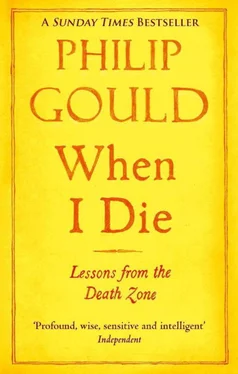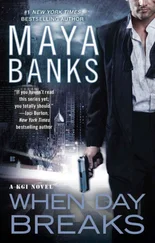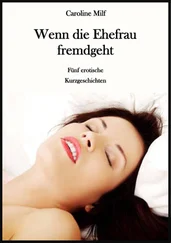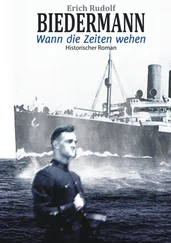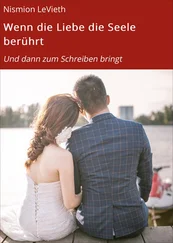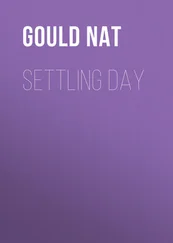Times like this, when I had taken such an abrupt and brutal approach, or when I had spent night after night conducting focus groups, neglecting the kids, who were asking for my help and not always getting it, troubled her. And she said so.
She also felt that I had indulged in a long-term strategy of destruction in which, after she had built up wonderful houses or institutions, I would almost always destroy them. I half-expected her to ask: what have you been on all these years? But she did not.
I could see for the first time that some of my actions had been driven less by a need for power in our relationship than by my own insecurity about it. Now I could see how wrong I was, both about Gail and myself.
On the other hand, I could see that I had hugely underestimated her fantastic, almost unlimited skills. It had taken living on Planet Cancer, and in particular realising I was close to death, for me to see these for what they were.
My response to Gail’s anger was to accept it, to apologise and to show that I understood that what I had done was wrong. I replied: ‘Well, you are right to be angry, quite honestly.’ And then, after that, we moved on to a different place, one we have never left.
I realised that there was a huge process of reckoning to be done.
Reckoning is not some concept that just happens by itself. It is not going to happen after you die. You have to look into your life. And you think, oh my God, these are the things I have done. I have a little bit of time here; I can resolve them.
I have done a lot of that with Gail, and I have done the same with others, including the children. But of course I have known Gail for forty years – we have had a lot of time together, and we still have a little time. It is different for my children. They are young, twenty-five and twenty-two, and are trying to come to terms with all of this. Sorting things out, individually or between us, is more rushed and difficult in some ways. But the honest truth is that I have found that if one has the will and the intention, it is possible to effect enormous transformation.
I have always got on moderately well with my sister, Jill, but never super well. Now, because of this situation and because of the conversations that we have had as a result of it, we are getting on much better than ever. There has been time to make these changes.
These reckonings with people whom I love would not have happened were it not for our knowledge and acceptance that I will die of cancer soon. Because they know I am going to die and I know that I am going to die, we are willing to do it. But because I have been given this little bit of time, we are also able to do it. In this way death gives meaning to life.
On Monday, the final day of my stint at the Marsden, the tenor of our conversation changed again. Now we looked to the future. We began talking about buying a new flat for Gail and the best way forward for her without me. We discussed the best ways for her to develop her life.
We had moved in three days from nostalgia, via anger about the past, to a sweet and meaningful discussion of the future. I believe this was a transcendent moment in our marriage, after which we moved to a new level of understanding of each other.
Gail has changed, I think permanently. This has not been just a surface change either. It is a change that is deeper and better rooted than that. She has become slowly and surely a different person. Warmer, less private, more open. She has begun to trust me more. Her response to my cancer in its terminal stages has been unbelievably tender and loving. This love is of a degree and intensity I have almost never felt before.
There have been good times and bad times. But these are new times.
I am going to die. My death is inevitable and is likely to come within the next few weeks, perhaps even within the next few days. It is real. It is a fact of my life. There is no opportunity to cop out or dissemble. There is no way to avoid it. It is there. I am going to die soon. As long as I keep telling myself that and do not seek to evade it, I am in the right place.
The awareness of death that I had throughout my life was, I see now, an illusion. Even when the doctors said there was a 25 per cent chance I would die, then a 60 per cent chance, there was always an escape. It is only when they said: Philip Gould, you are going to die. Get used to it. This is going to happen in months or weeks but it is going to happen. Only then do you become aware of death, and suddenly life screams at you with its intensity.
The doctors who matter, the doctors you trust, always confront this reality. They tell you: sooner rather than later, you are going to die. For example, at the beginning of this process I went on television and said, ‘Well, they told me I’ve probably got three months to live.’ I went along, saw my doctor and said, ‘Yeah, three months to live,’ and he said, ‘No, that was six weeks ago. You have just six weeks left now.’ And that absolute harshness and clarity and real connection to the time you possibly have to live is the key to this.
I believe that only when you accept death can you free yourself from it, deal with it, move forward from it. Acceptance is the key.
Every single time you try to tell yourself ‘Yeah, but…’ or ‘OK, it’s tough, but…’ or ‘OK, it’s difficult, but maybe…’ that is a lie. And that lie will stop you living properly, and it will stop you having a good death.
Whenever I start to deviate from acceptance and start to think, ‘Yeah, OK, maybe…’ or if I hear someone saying it, even someone I love, I say: ‘Look, your dad is going to die, your husband is going to die… There is no alternative to this, it is going to happen.’
At that moment you gain freedom. You gain power. You gain courage.
That is what I think about the nature of death. I know that people deal with death in different ways. If people wish to use denial, then fair enough. That is their decision. However, denial is not for me at all.
And I am absolutely sure from my understanding of life, my understanding of death, my understanding of all there is to do with these complex issues, that you have to be honest and you have to be true to yourself and you have to accept.
When you reach that place where you have been told – and you believe – that you are going to die within a certain amount of time: that is the Death Zone.
If you know you are dying but say: ‘Well, I’m not in the Death Zone because it is not yet certain’ – in other words, that it is not certain you are going to die yet, that it might be in a year, or two – then you are in denial.
This is just a way of saying: ‘Actually, I’m in the Death Zone… but I’m not in the Death Zone.’ That will not work. You have to accept the fact, accept that you are going to die.
If you accept that, then progress is possible. And not just progress, which we will talk about later, but all manner of things are possible. But you have to accept that you are about to die.
I absolutely feel that the moment I accepted death and looked it in the eye and faced it, then I had – not defeated death, you cannot defeat death – freed myself from death. I think I have shown myself that I have the courage to be able to transcend death. Maybe I cannot beat death, but death cannot beat me.
The key is to look death squarely in the eye without blinking. I know that sounds arrogant, but I believe it to be true.
My wife and I went to see a vicar about my funeral arrangements. We were so nervous we were all over the place. We did not know what we were doing. But as the hour passed, calmness came, and we realised we were not frightened of death any more. We were facing death by looking it in the eye, and that gave us freedom.
Читать дальше
